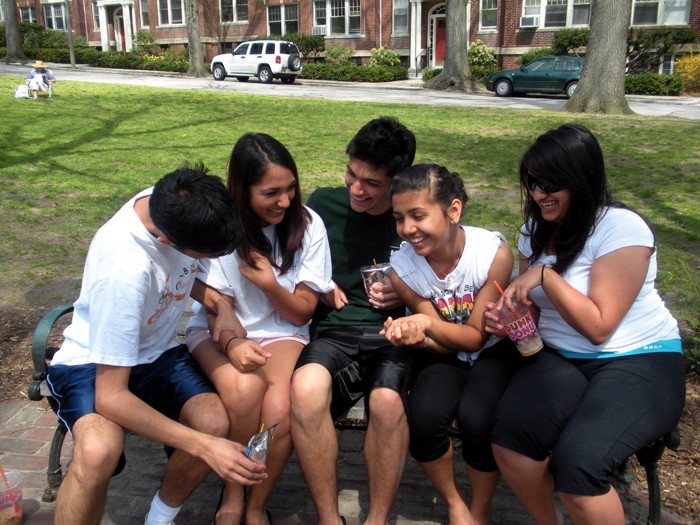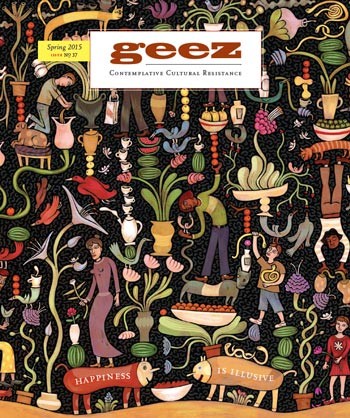Intimacy and Delight in Relationships

Credit: Nicole Marie Edine, https://www.flickr.com/photos/lilomoony/5216760159
Some time ago, I dropped the word happy from my vocabulary.
Within my societal context, happy reads as individualistic, self-serving, and implicitly consumerist. People seem lost in its obsessive pursuit, and no wonder, when happy is defined by advertisers and self-help gurus, taking us to a place of insatiable, necessary consumerism and self-centredness.
I’m not extolling permanent solemnity or a new asceticism – I readily embrace gladness, delight, and mirth. But I am for a gladness that is reached in ways intrinsically subversive to the ethic of our society.
Sounds cool, right? Subversive happiness. But what is it? A deep sense of groundedness and pleasure in seeking what is just and loving. A different pursuit – of the biblical notion of shalom, or holistic peace, as described by philosopher Nicholas Wolterstorff: intimacy and delight in relationship with the earth, other people, and our Creator. In the context of the biblical meta-narrative, shalom is shadows of the beauty of life in the garden, and glimpses of the peace and justice that is now simmering and is to come.
It is a happiness-with, rather than happiness at the expense of, and a choice to live in the ways that create it: happiness-with our local watershed; happiness-with the people who share our days; happiness-with the people who have made the objects we buy; happiness-with the land and animals and people who have grown the food we eat.
The year my eldest child was four, her love of chives gave me immeasurable delight. Delight in her pleasure in picking them herself, in the green shoots spilling from her mouth and hands and pockets, in the juxtaposition of sweet child and overpowering onion breath, in her (unwelcome) attempt to better a friend’s cupcake by sprinkling chives into the icing.
We were giving new life to a tiny scrap of poor urban soil; giving children the exciting notion that food doesn’t have to come from a grocery store nor in plastic packages; challenging stereotypes about what kids eat and what little girls are (and smell) like; empowering ourselves and others to think and act outside our cultural norms; and sharing laughter along the way. That is subversive happiness: happiness-with.
It comes in many other forms too, of course, some much grander and more complex than chives by our door. But it can also be that simple.
Some of my most profound happiness-with moments happen on public transit, with folks who are very different from me, perhaps even – at first glance – alarmingly so. Connecting authentically with strangers is more radical than it may seem. What’s normal is to distance ourselves, or even to laugh at rather than laugh with the stranger in our midst, the one who is other to us. When my kids and I share a moment of delight and understanding on the streetcar with someone who is a stranger – and strange – to us, I am glad, and it’s a deep-down kind of gladness, not the kind that can be achieved with a beer-commercial hairstyle aboard a yacht on a summer’s day.
At times like these I hear the echo of “it is good,” the glad refrain of the creating One, in assessment of every point of creation.
It is good. Our connections, our valuing, our enjoyment of one another and the earth is good, and it gives me deep joy.
If you want, you can call it happiness.
Leanne Wild feels deep joy when she is walking with her daughter, holding her hand. She lives in Toronto, Ontario.



Sorry, comments are closed.